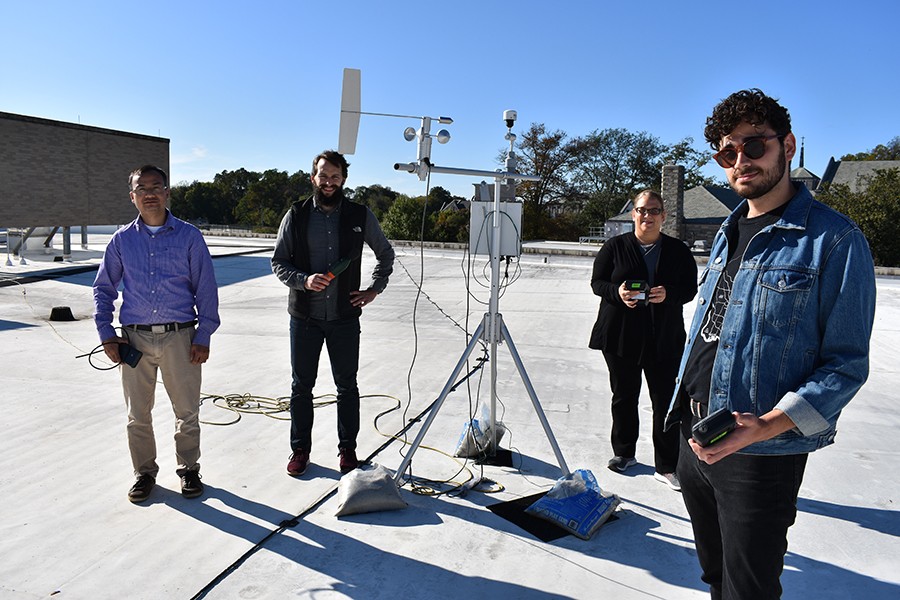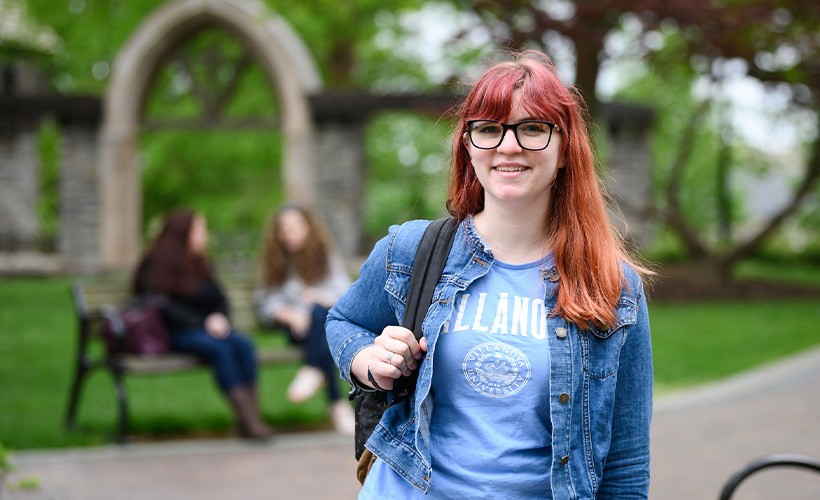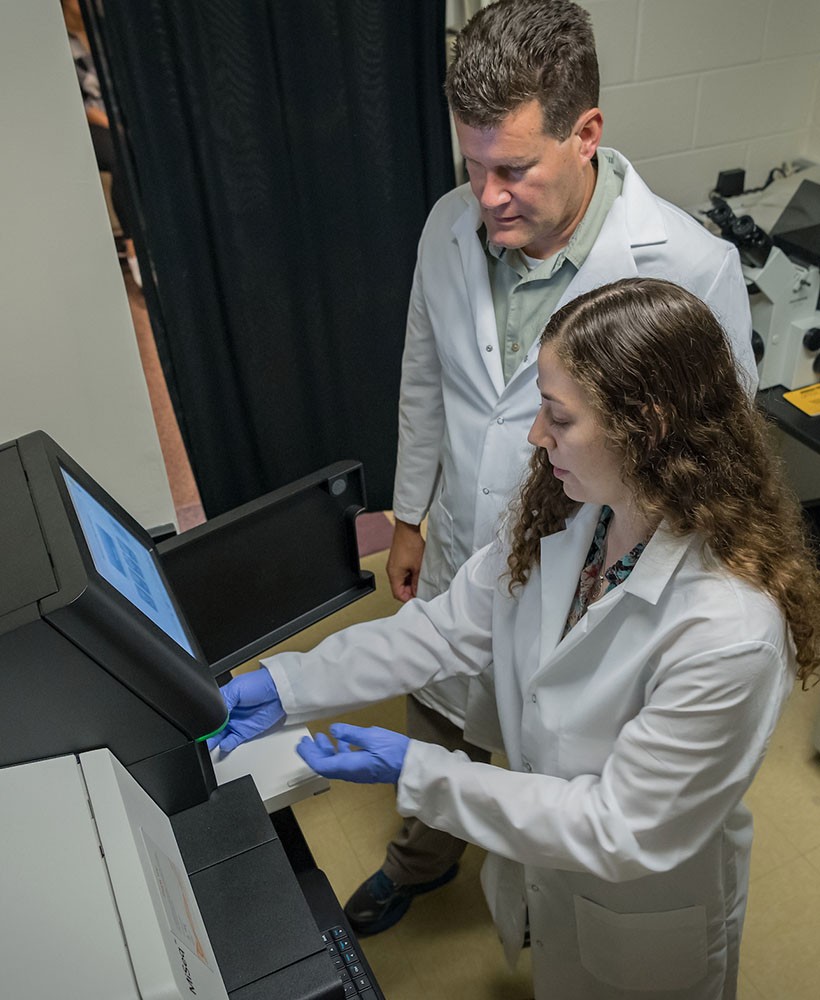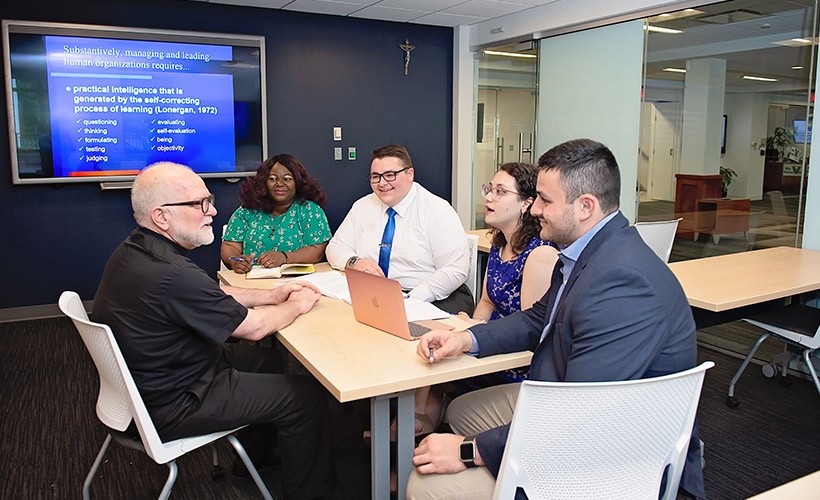GRADUATE PROGRAMS IN ENVIRONMENTAL SCIENCE
The Master of Science in Environmental Science (MSES) program emphasizes integrated thinking and learning at the nexus of science, policy and human behavior.
As a graduate of Villanova's Master of Science in Environmental Science program, you will see beyond linear and fragmented approaches to solving environmental problems to understand the complex interactions between people and the environment. You will:
- Understand fundamental and advanced scientific principles related to the environment;
- Connect contemporary environmental issues with a variety of non-science disciplines, including the fields of social science, policy, ethics, humanities and religion;
- Construct models to facilitate the understanding and solution of environmental problems;
- Select and apply appropriate research methods and techniques to solve complex environmental problems.
WHY VILLANOVA MSES?
Expand your understanding of some of the most pressing issues facing society today and gain the tools necessary to address these issues with Villanova's MS in Environmental Science. The program has a single overarching objective: producing highly educated graduates who can anticipate and respond effectively to the uncertainties of a changing natural environment given the necessary constraints of public policy, economic reality and human considerations. Graduates will be able to apply their science education to anticipate uncertainties, solve complex environmental problems, and respond effectively to challenges and ambiguity with confidence and reasoned judgment.
Students in the MSES program gain technical expertise through their work in courses, the laboratory, in the field and through independent study. Students obtain hands-on experience with state-of-the-art scientific and geospatial equipment and learn quantitative skills that are highly sought by employers. Students will gain highly marketable skills in relevant technologies such as Geographic Information Systems, Global Positioning Systems, computer-aided cartographic techniques and satellite imagery.
Faculty in the Department of Geography and the Environment are leaders in their fields and maintain active research programs that receive significant external funding. Graduate students have numerous opportunities to undertake meaningful research under the mentorship of Department faculty. The MSES faculty includes professors with expertise in several academic disciplines and a wide range of scholarly interests that span the scope of geography, biology, chemistry and geology and intersect at the nexus of environmental issues. Our faculty actively engages in research, publishing in the top academic journals of their respective fields, presenting at both national and international conferences, and collaborating with local environmental organizations and groups.
Villanova’s geographic location near Philadelphia in the Mid-Atlantic coastal plain is advantageous in offering a variety of research environments, including estuarine, coastal zone, forest and upland, urban and suburban and agricultural environments.
ALUMNI SPOTLIGHT - ERIN SIEBERT ’20 MS
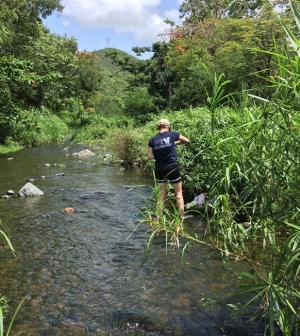
In September 2017, Hurricane Maria ripped through Puerto Rico, devastating the island along with other Caribbean islands in its path. Dr. Steven Goldsmith and Dr. Lisa Rodrigues, Associate Professors of Environmental Science in the Department of Geography and the Environment, and a team of graduate students including Erin Siebert '20 MS, studied how stream chemistry has changed post-Hurricane Maria. The research was part of Sibert’s master's thesis.
“My research has the potential to illustrate how a system both responds and recovers from a natural disaster like Hurricane Maria,” said Sibert. “It is my hope that this research can exemplify the need for funds and resources to support our citizens before and after a natural disaster like this occurs.”

